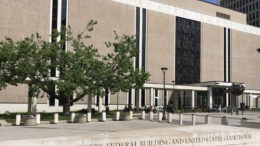Colorado Public Radio and CFOIC object to proposed closure of civil case against Colorado Springs YMCA
The Colorado Freedom of Information Coalition joined Colorado Public Radio and a UCLA law professor in objecting to the proposed closure of court proceedings and records in a federal lawsuit brought against the YMCA of the Pikes Peak Region.










